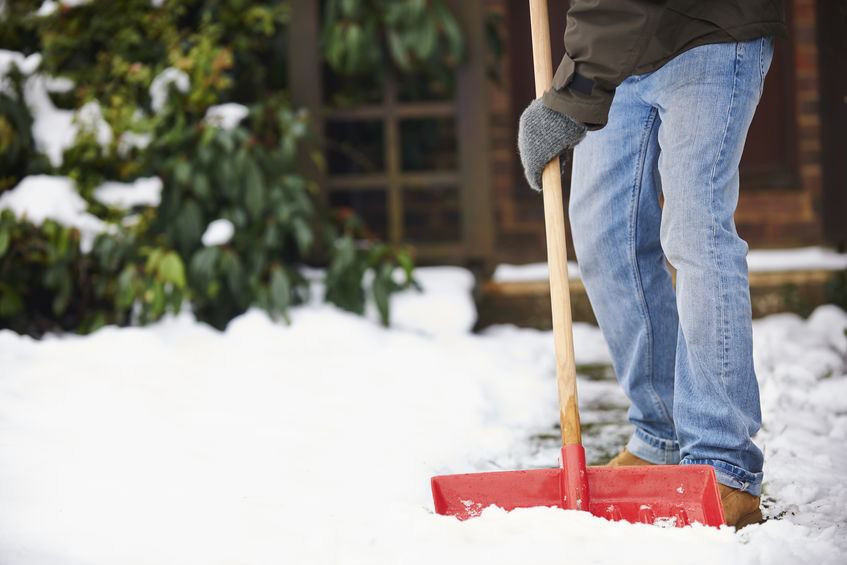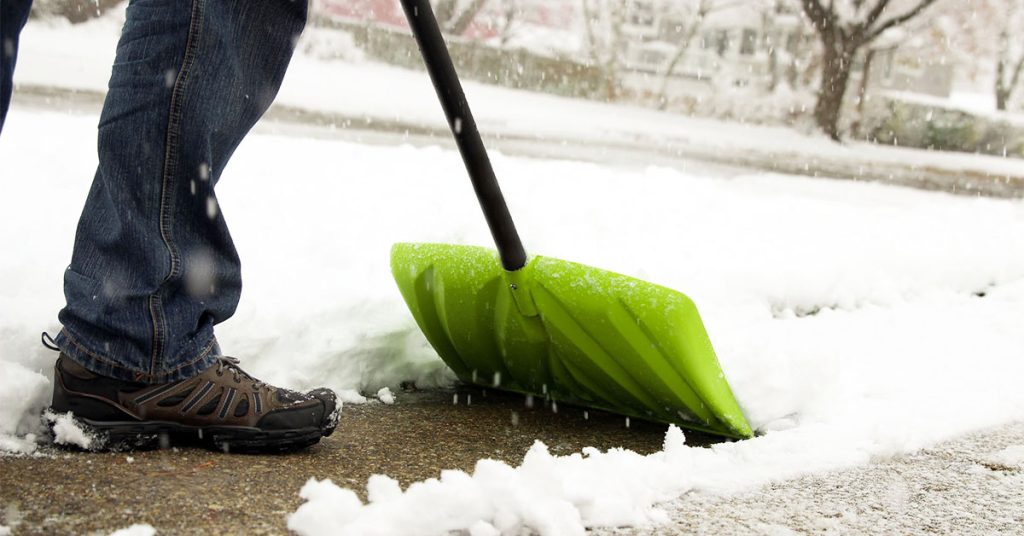Posts Tagged ‘“snow and ice accidents”’
Property Owners Have a Responsibility to Shovel in Massachusetts
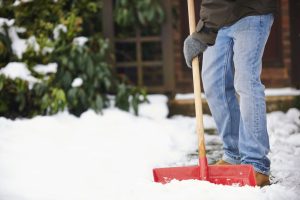 After our first nor’easter of the season, much of Massachusetts is now covered in a cold sheet of snow and ice. A total of 12.5 inches fell last weekend in part of Worcester County, while Middlesex County saw 2 to 7 inches of accumulation, according to MassLive.
After our first nor’easter of the season, much of Massachusetts is now covered in a cold sheet of snow and ice. A total of 12.5 inches fell last weekend in part of Worcester County, while Middlesex County saw 2 to 7 inches of accumulation, according to MassLive.
You may have shoveled, yet the work isn’t over. In these harsh New England winters, property owners must remember their legal responsibility to use reasonable care to keep their property safe. If you neglect to remove snow and ice from your driveway, someone could be injured and you could be held financially liable.
Commit to inspecting your property daily after a snow storm. Insect your driveway, walkways, roof and gutters. Go outside and walk from your front door to the end of your driveway and back. This is how your guests, mail carriers and package delivery professionals approach your home. This route needs to be safe.
A Property Owner’s Responsibility in Massachusetts
In Massachusetts, property owners have a duty to use reasonable care in clearing snow and ice so no one is injured. Papadopoulos v. Target Corp., 457 Mass. 368 (2010).
Papadopoulos v. Target Corp. changed more than 100 years of common law in Massachusetts and abolished the distinction between “natural” and “unnatural” snow and ice accumulations in premises liability actions. Property owners now have a duty to use the same reasonable care in treating snow and ice as they do other property hazards. It does not matter how the snow and ice accumulated. They owe a duty to all lawful visitors to use reasonable care to maintain their property in a reasonably safe condition.
How Often Should I Check My Driveway?
The best way to prevent a snow and ice injury is to treat snow regularly and promptly in the hours after a snowstorm, then also throughout the winter. This includes your driveway and walkways, as well as areas where cars, pedestrians and delivery trucks come in and out of the driveway. This activity can cause melting and refreezing for weeks after a storm.
Be aware of freezing and melting on other areas of your property as well, such as under roofs and gutters. Pay the most attention to your front step so delivery services and guests can safely access.
What if a Snow Plow Throws Snow on My Driveway?
It is still your responsibility to remove snow pushed onto your property so no one is injured. There is nothing more frustrating than shoveling your driveway, only for the plow to come back around a few minutes later. Again, the most effective response is to act quickly. Snow will be easier to shovel before it freezes to your driveway.
What If I Am Injured on Someone Else’s Property?
Use caution whenever you visit friends and family during the snow season. Try to find out if they have shoveled and salted their driveway and walkway before you visit. If you arrive and their driveway is iced over, consider visiting another time.
What if I am Injured on a Business Property?
Grocery stores and other businesses also have a responsibility to clear snow and ice and keep parking lots and other areas safe for travel after a snow storm. But there are times when snow and ice is left to accumulate or is not fully cleared. There are often several parties involved in commercial lease agreements, including a landlord, tenant and property management company. These parties may not always properly communicate or the party in charge of snow removal may be trying to save money. The party in charge may also not be experienced in hiring snow removal companies or realize the work involved.
When a business is negligent in clearing snow, slip and fall accidents can happen in parking lots. Another hazard is store floors and entrances. When snow melts, water accumulates and someone could slip and fall. A third danger is icy railings. Those in charge of the property have a responsibility to regularly inspect and remove snow and ice from railings, so a visitor doesn’t unknowingly reach for one and fall.
Since businesses can be open extended hours, property owners have a responsibility to address snow and ice accumulation promptly.
Be Aware of High Risk Areas for Mail Carriers and Package Delivery Professionals
Walk to the end of your driveway and make sure mail carriers and package delivery professionals can safely reach your front steps or mailbox.
Help the Elderly in Snow and Ice
The elderly are the most vulnerable to snow and ice injuries. If they fall, they are more likely to suffer long-term injuries. You can be proactive and prevent an injury by asking elderly friends, neighbors and family members if they need any help or anything at the grocery store. Encourage them to stay inside in the hours after a snow storm.
After a Snow and Ice Accident
If you are injured by a snow and ice accident, a doctor should evaluate you to determine if you fractured bones or suffered a concussion or other injuries.
If you were seriously injured, contact a lawyer and learn your legal rights. Contact a lawyer promptly. Under Massachusetts law, there is a limited time to notify a private property owner about injuries in cases involving snow and ice.
Free Legal Consultation – Boston Snow and Ice Accident Lawyer
With 100+ years combined experience, Breakstone, White & Gluck has been consistently recognized as a top-rated Boston personal injury law firm. Our attorneys have been recognized by Top 100 New England Super Lawyers, Top 100 Massachusetts Super Lawyers and Massachusetts Super Lawyers, in the specialties of personal injury and medical malpractice. The firm has also been recognized by U.S. News – Best Law Firms with Tier 1 rankings in personal injury and medical malpractice.
For a free legal consultation, contact Breakstone, White & Gluck at 800-379-1244 or 617-723-7676. You can also use our contact form.
Cautionary Tales about Snow and Ice Accidents in Massachusetts
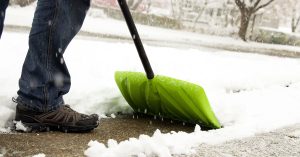
As we negotiate the season’s first snow, there are many warnings: give yourself extra time, drive slowly and clear your car, front steps and driveway.
Remember these precautions in coming days and weeks, especially if you are a property owner. In Massachusetts, property owners have a duty to use reasonable care in clearing snow and ice so no one is injured. Papadopoulos v. Target Corp., 457 Mass. 368 (2010). Where there was once a distinction between “natural” and “unnatural” snow accumulations, there is no longer. The best way to keep your property safe is keep up with each snow fall. Frequently inspect your property throughout the season.
Snow and ice injuries can be serious, requiring months or more to heal. Shoveling your driveway is your responsibility as a property owner and the right thing to do. No one wants to bear the guilt of causing another person injury. And no one wants to be held liable for someone else’s injury and have to pay financial damages.
At Breakstone, White & Gluck, our Boston personal injury lawyers have extensive experience handling premises liability cases, including snow and ice injuries caused by negligence. We share our cases as cautionary tales.
Slip and Fall on Icy Ramp at Commercial Property, $825,000 Settlement
Attorney Marc L. Breakstone successfully negotiated an out-of-court settlement for a client who suffered a serious fall on an icy handicap ramp. The ramp was on a commercial property. Our client suffered a trimalleolar fracture with ankle fusion and had to undergo multiple surgeries. Photos gathered in the case showed part of the handrail was actually missing prior to the accident and there was ice from a downspout. The case settled in favor of our client after two days of mediation. Attorney Breakstone had engaged an engineering expert and meteorology expert to testify had the case gone to court.
Heavy Snow Collapse Causes Traumatic Brain Injury, Undisclosed Settlement After 4th Day of Trial
Attorney Ronald E. Gluck successfully negotiated a settlement for our client, who was injured when heavy snow collapsed suddenly from a commercial warehouse roof onto her vehicle. The defendants – the property owner, the property management company and the company which leased the warehouse – had neglected their duty to clear the snow and provide a safe environment. The case went to Middlesex Superior Court, where Attorney Gluck presented testimony from multiple expert witnesses, including a neurologist and a meteorologist, in support of his client’s case. Each day, the defendants made an offer to settle the case. After the fourth day, Attorney Gluck’s client accepted an offer that represented an 800 percent increase from the pre-trial offer.
Free Legal Consultation – Breakstone, White & Gluck
Breakstone, White & Gluck brings more than 100 years combined legal experience to those injured by negligence in Massachusetts. We represent clients across Massachusetts, including in Boston and Cambridge; Saugus and the North Shore; Brockton and Plymouth; Cape Cod; Framingham and MetroWest; and Worcester and Central Massachusetts.
If you have been injured as a result of someone else’s negligence, learn your rights. Contact Breakstone, White & Gluck for a free legal consultation with one of our personal injury attorneys. Call 800-379-1244 or 617-723-7676. You can also use our contact form.
Massachusetts Law: Property Owners Have Responsibility to Keep Their Property Reasonably Safe from Snow and Ice Hazards
 Many of us would rather skip the shovels, snowblowers and ice scrapers this winter. But when the snow falls, remember that Massachusetts property owners have a responsibility to keep their property reasonably safe. So your shovel must come out.
Many of us would rather skip the shovels, snowblowers and ice scrapers this winter. But when the snow falls, remember that Massachusetts property owners have a responsibility to keep their property reasonably safe. So your shovel must come out.
For over 100 years, Massachusetts property owners enjoyed a special exemption from liability for “natural accumulations” of snow and ice. An injured person previously had to demonstrate that the accumulation was unnatural, such as the frozen discharge from a gutter, or a pile of plowed snow across a sidewalk. But for the past six years, Massachusetts has followed the rule of reasonable care.
All residential and commercial property owners now have to take reasonable steps to clear the snow and ice hazards and keep their property safe for traveling.
Massachusetts started following the rule of reasonable care after the Supreme Judicial Court of Massachusetts ruled in the case of Papadopoulos v. Target Corp., 457 Mass. 368 (2010).
Attorney David W. White has written on the rule, discussed the case in the media and participated in MCLE panels on property owners’ liability in snow and ice cases.
“Property owners must understand it is no longer optional to shovel so you should get out there early and keep up with it,” White said.
Read Attorney White’s comments in The Boston Globe, Boston Business Journal and the Allston-Brighton Tab newspaper.
About Attorney David W. White
Attorney David W. White has distinguished himself for his advocacy on behalf of his clients and his leadership among Massachusetts lawyers. Attorney White is a past president of the Massachusetts Bar Association who has represented clients injured in personal injury cases for over 30 years. He has been selected as one of the Top 100 Super Lawyers in New England and Top 100 Super Lawyers in Massachusetts. Read more about Attorney David W. White.
About Breakstone, White & Gluck
The Boston personal injury lawyers at Breakstone, White & Gluck have over 100 years combined experience representing individuals who have been seriously injured in slip and fall accidents and snow and ice accidents caused by a property owner’s negligence. If you have been injured, it is important to learn your rights. For a free legal consultation, contact us at 800-379-1244 or 617-723-7676 or use our contact form.
Heaving Snow Posing Risk for Homeowners and Roofs
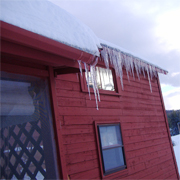 A young woman’s death after heavy snow caused a roof collapse in Weymouth has officials warning the public to watch out for their homes.
A young woman’s death after heavy snow caused a roof collapse in Weymouth has officials warning the public to watch out for their homes.
On Thursday, a 29-year-old woman was killed when a carport collapsed on her. The woman was talking on the phone while sitting on the porch steps of a Harlem Road home. The Massachusetts Emergency Management Agency (MEMA) has issued a warning for the public to clear off their home roofs and storm drains in their neighborhoods to minimize flooding problems.
While we expect snow in Massachusetts, it has challenged drivers and caused numerous school day cancellations this season. Piles of snow have hampered visibility. Drivers are navigating a maze of snow-packed and slushy roads along with dangerous potholes and, which are starting to appear in the melting.
In addition to the Weymouth woman’s death, a barn collapse in Framingham killed three cows and injured four others this week. At the Burlington Mall, a water main break trapped a vehicle in a large sinkhole. The mall was closed but expected to re-open today.
It may seem like a record-setting season, but not this year. Yes, we are already 25 inches above the average season’s snowfall. But earlier this week (before the snowfall) the Boston Herald reported that while Boston had seen 53.5 inches, 1995-1996 was the record snow year, with 107.6 inches. The National Weather Service has predicted this season will not even make the top 10 list for heaviest snowfalls.
When snow piles up, some roofs are vulnerable to collapse, especially when there are numerous snow storms combined with rain and overnight melting. Flat commercial roofs are at the greatest risk. This year, while the snow may not appear that deep, some of the storms have dumped heavy wet snow, and that has been followed by soaking rains. The loads are immense.
How to remove snow from a roof is a challenge. Homeowners can attempt to clear it themselves with a snow rake, which can be purchased at most hardware stores. But you should never use a snow rake from a roof. You should clear the snow from the ground to avoid the risk of slipping and falling and head injuries.
Unless you are experienced, avoid ladders, which can be extremely slippery. The other thing to know is that metal snow rakes can conduct electricity if they come into contact with a power line.
Often by this time of year, a roof may require a professional treatment because of repeated snow storms and winter freezing. If that is the case, call someone who is experienced and insured for this type of work. They should be insured in case they damage your home, and they should also carry worker’s compensation insurance for their employees. You have the right to ask for proof of insurance, and you should.
Finally, do take some time to shovel your walks and your stairs. It the safe and the neighborly thing to do.
Read More
Travel Safe in Boston After Blizzard of 2013
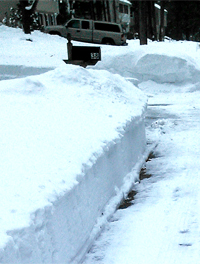 After a snow storm that buried Massachusetts with record-setting strength, many of us are slowly making our way back to our daily routines.
After a snow storm that buried Massachusetts with record-setting strength, many of us are slowly making our way back to our daily routines.
Massive snow banks, narrow roads and giant icicles are now the challenge. Governor Deval Patrick has lifted the weekend’s driving ban, but the State of Emergency remained in effect this morning. Many schools cancelled classes for another day and Boston Mayor Tom Menino encouraged businesses to let their employees work from home today.
Our tips for staying safe and avoiding injuries as you travel:
Community Websites. Check your community website for information about snow plowing and closed streets, as well as power outages and school closures.
Public Transportation. Use the MBTA if you are traveling into Boston. Mayor Menino is urging the public to stay off the roads to make room for cleanup.
Store and Pharmacy. Choose merchants close to home if you are heading out to restock up on food, medications and other supplies. Travel in daylight if possible.
Pedestrians Use Caution. Stay indoors today. Over the next few weeks, limit outdoor walks until the snow melts. If you must walk, wear a neon-colored vest.
Drivers. If you do drive, beware of the tall snowbanks and avoid roads which may not be fully cleared. Remember some roads may not have enough space for two-lane traffic.
Parking. Call ahead to ask about parking, even to your employer. Parking may not be available or be limited. Looking for spaces can lead to frustration among drivers and car accidents.
Gasoline and Vehicle Supplies. Keep your gas tank full over the next few days and equip your car with supplies such as a first aid kit, snow brush, small shovel, blanket and an extra hat and pair of mittens.
Take a Minute. Driving in these conditions can be stressful and accidents can occur. If you find yourself in a dangerous situation, pull over at your earliest opportunity. Take a minute to think about your options and if necessary, call the local police or fire department on their non-emergency line and ask for their direction.
Related:
Massachusetts Emergency Management Agency App.
Massachusetts Snow Storm Safety Tips
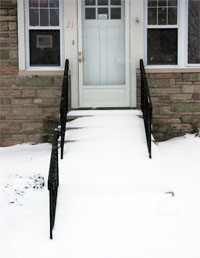 In a few hours, a historic snowstorm is forecast to begin, blanketing Boston with 18 inches in many areas and 24 to 32 inches in some regions. Gov. Deval Patrick has urged the public to stay home, and directed non-essential state employees not to report to work. Many schools and offices have closed in response. The MBTA will close at 3:30 this afternoon and may remain shut down through the weekend.
In a few hours, a historic snowstorm is forecast to begin, blanketing Boston with 18 inches in many areas and 24 to 32 inches in some regions. Gov. Deval Patrick has urged the public to stay home, and directed non-essential state employees not to report to work. Many schools and offices have closed in response. The MBTA will close at 3:30 this afternoon and may remain shut down through the weekend.
With a few more hours, here are some tips to prepare yourself:
Have a Plan to Stay in Contact. Whether you live at home with your family or in an apartment on your own, have a plan to communicate with your relatives, landlord and others. Gather phone numbers for snow plow companies, neighbors and local police and fire departments.
Check Your Community Website. Your city or town should post emergency information for residents to follow during the storm, including plans for clearing snow, snow storm accidents and emergency notifications.
Keep in Touch Electronically. Charge your cell phone now and monitor news on TV and the Internet. Another source of information is to dial 2-1-1, the state’s telephone information call center during times of emergency. You can also sign up for electronic alerts from the state on your phone by clicking here.
Social Media. If you are on Facebook, you can follow MEMA, the Massachusetts Emergency Management Agency by visiting its page. If you use Twitter, the hashtag for storm updates is #MAStorm.
Gas Up. The lines at the pump may be long, but if you can, fill your car with gasoline. This will give you a way to charge your cell phone if your home loses power.
Food and Supplies. Make sure you have enough food and supplies to pass the weekend, including bottled water and flashlights. Also make sure you have any medications you may need.
Power Loss. We may lose power so set your appliances and gather supplies accordingly. Set your refrigerator to the coldest setting and have a cooler ready, so you can keep it shut as much as possible during the storm. Food can stay cold in a full refrigerator for up to 24 hours and in a full-packed freezer for 48 hours. Have non-perishable food on hand as well, such as granola bars.
Turn Off TVs and Other Appliances. If we lose power, unplug sensitive electronic equipment such as TVs, microwave ovens and computers. These can cause irregularities when power is restored. Leave a light on so you know power is restored.
Plan for a Heating Loss. Gather blankets and seal off unused rooms by stuffing towels in the space under the doors. At night, cover windows with extra blankets and sheets. Make sure you regularly eat.
Freezing Pipes. If pipes freeze, remove insulation, turn on all faucets and pour hot water over the pipes. With caution, you can also use a hand-held hair dryer on the pipes.
Clearing Snow. Keep up with clearing snow as much as you can in the early hours of the storm and after the storm, follow directions from state and local officials for clearing it from areas such as sidewalks.
Clear Snow from Furnace Pipe. Throughout the storm, make sure your furnace exhaust vents remains clear of snow to avoid a build-up of carbon monoxide in your home. This is essential even when you cannot clear your driveway and other areas because it could result in poisoning.
Related:
Winter Power Outage Safety Tips, Massachusetts Emergency Management Agency.
Read More
Snow and Ice Accident Appeal Leads to New Trial in Massachusetts Superior Court
An appeal by a plaintiff in a Massachusetts snow and ice slip-and-fall case has led to the opportunity for trial. The Massachusetts Appeals Court vacated the original judgment and remanded the case for further proceedings after finding that the judge erred in allowing the defendant’s motion for summary judgment.
The case arose from a fall that occurred outside a McDonald’s restaurant in 2007. The plaintiff, Mercilia Lindor, slipped and fell on an icy sidewalk outside the restaurant, breaking her foot. While still lying on the sidewalk, Lindor witnessed another man close by slip and fall to his knees. The conditions were so bad that emergency personnel at the scene had difficulty moving the plaintiff. They had to ask McDonald’s employees to salt the area.
Prior to trial, McDonald’s moved for a summary judgment, arguing that the ice outside the restaurant had accumulated naturally, and that under long-standing Massachusetts common law it was not liable for an accident occurring under those conditions. The plaintiff filed no opposition, and the judge allowed the defendant’s motion, issuing the order on July 22, 2010.
The resulting judgment was entered on the docket on July 28, 2010.
Two days prior to this, however, on July 26, 2010, the Massachusetts Supreme Judicial Court decided the case of Papadopoulos v. Target Corp., in which it established a new standard for determining liability in cases of injury arising from ice and snow accidents: property owners must take “reasonable care” to remove all accumulations of ice and snow. This new standard does not require any distinction between “natural” and “unnatural” accumulations.
The Court also held that the ruling was retroactive, meaning it will be applied to all open and pending claims in which a judgment had not yet been entered. Although the judge issued an order for summary judgment prior to the Papadopoulos ruling, in Massachusetts a judgment is only considered final when a clerk dockets it. Fortunately for the plaintiff, this occurred on July 28, two days after the ruling in Papadopoulos. For this reason, the “reasonable care” standard established in Papadopoulos will apply to Lindor’s case.
The Court decided that there was a genuine issue of fact as to whether McDonald’s took “reasonable care” in protecting lawful visitors to the property, and as a result, the judgment was vacated, enabling Ms. Lindor to pursue her claim.
The case decided was Lindor v. McDonald’s Restaurants of Massachusetts, Inc., Mass. App. Ct No. 10-P-1615 (November 10, 2011).
Read More
Driving Safely On The Roads This Winter
Massachusetts commuters struggled through a hard January, as a record four feet of snow slammed the region, making for dangerous drives, difficult walking and weary spirits.
As February moves in, both the snowbanks and frustrations keep growing – making it even more important to plan before heading outside, especially if you commute to work.
The risk for car accidents increases in the snow and approximately 70 percent of all winter deaths related to snow and ice occur in automobiles, according to the Massachusetts Emergency Management Agency.
Here are our some safety tips from the Boston personal injury lawyers at Breakstone, White & Gluck:
- Have a well-stocked Winter Emergency Car Kit. It should include a flashlight with extra batteries, cell phone charger, first-aid kit, windshield scraper and brush, shovel and a brightly colored cloth to use as a flag. Click here for other items to include.
- Consider public transportation.
- If you drive, travel during daylight hours. Consider commuting with a co-worker on the most difficult days.
- Slow down on the road. Many times, hazards such as black ice cannot be seen until it’s too late.
- Be extra cautious driving around bends in the road. The tall snowbanks have narrowed the roadways, leaving less room for both you and other cars, increasing the chance for car accidents on snow and ice.
- Give the snow plows extra room to work.
- Be aware you may have to slow down for pedestrians in areas where sidewalks aren’t shoveled.
- Keep your car’s gas tank at least half-full.
- Make sure your car has good winter tires with adequate tread and pressure.
- If you do have to stop your car on the highway, stay calm. Pull off the road and turn off the hazard lights. Take the brightly colored distress flag from your snow emergency kit and tie it to your radio antenna or window. Call the local police and your local auto club for assistance.
What Massachusetts Property Owners Need to Know About Snow Removal
This year’s snow fall brings new responsibilities for Massachusetts property owners. A new law took effect in July 2010, when the Supreme Judicial Court ruled in the case of Papadopoulos v. Target Corporation.
The ruling means property owners now must take reasonable care to remove all snow accumulation from their property and keep accessible areas safe to travel. Previously, Massachusetts property owners enjoyed a special exemption from liability for “natural accumulations” of snow and ice. An injured person had to demonstrate the accumulation was “unnatural,” such as a snow pile created by a plow.
The ruling means snow removal is now a requirement. If a property owner fails to use reasonable care in clearing snow and ice from their property and someone is injured as a result, the property owner can be held liable.
Breakstone, White and Gluck has recently explained the new law in the media, including what it means for property owners and those injured in snow and ice accidents. Here’s what we had to say:
Snow Removal Law May Face Test. Attorney David White discusses Massachusetts’ new snow removal law in The Boston Globe. Dec. 25, 2010. Click here to read.
Attorney David White tells WBZ-TV about the new standard for snow removal in Massachusetts and offers property owners tips for protecting themselves. Click here to watch. Dec. 20, 2010.
Attorney David White is interviewed by Fox 25 about the recent Massachusetts snow and ice decision and its impact on snow removal for property owners. Click here to watch. Dec. 17, 2010.
Snow and Ice Removal No Longer Optional. Attorney David White explains what a recent Supreme Judicial Court ruling means for property owners and snow removal this winter. Allston-Brighton Tab. Dec. 17, 2010. Click here to read.
Supreme Judicial Court Changes Rules on Snow Removal in Historic Decision. On July 26, 2010, the Massachusetts Supreme Judicial Court abolished the longstanding distinction between natural and unnatural snow accumulation in slip and fall cases. Attorney David White tells The Boston Globe the ruling means, “all property owners must pay attention to conditions caused by snow and ice.” Read the article here . Also read White’s comments in the Salem News and to the Associated Press.
Attorney Marc Breakstone tells Massachusetts Lawyers Weekly snow and ice decision is, “one of the greatest public safety decisions to come down in last 25 years.” Read full article here.
Read More
Property Owners Must Observe Snow Removal Ordinances and Recent Court Decision This Winter
Months after a landmark court ruling regarding snow and ice removal in Massachusetts, the city of Newton is considering a sidewalk snow removal ordinance.
The city initially proposed an ordinance requiring snow be cleared within 24 hours of a storm. Residents protested and city officials have proposed another ordinance allowing 30 hours. Businesses would still have 24 hours. The proposal is pending.
Many municipalities have ordinances requiring residents to keep their sidewalks clear to avoid snow and ice accidents. In Boston, renters, property owners and management companies of residential buildings with less than six units have six hours. Commercial property owners, renters and management companies have three hours, as do managers and owners of residential properties with more than six units.
Other communities provide larger windows of time. Springfield allows residential property owners and renters 24 hours while Worcester permits 10.
These ordinances are designed to protect the public on sidewalks. But property owners have a responsibility to keep their entire property safe after the Supreme Judicial Court’s decision in Papadopoulos v. Target Corporation, SJC-10529 (July 26, 2010).
Prior to the decision, property owners were liable for injuries sustained on what is known as an “unnatural accumulation” of snow or ice, such as a snow plow pushing snow onto a driveway. Now, property owners are liable for injuries resulting from natural accumulations as well, meaning they have a responsibility to keep their property reasonably safe and free from snow and ice after a storm.
If you are a property owner, this means you want to consider how you can prevent snow and ice accidents on your property this winter. Here are a few tips:
- You have a responsibility to clear your driveway, sidewalks and other areas accessible to the public.
- If you are using a snow blower, keep a shovel on hand as a back-up.
- Stock up on salt and use it regularly throughout a storm and in the hours afterward, when a large amount of freezing occurs.
- Walk your property after the snow falls. If you cannot move across it safely, others will be at risk.
- Ask yourself if you can handle your own snow removal. If not, contact a snow plowing company.
For more information about your obligations as a property owner, visit the Breakstone, White & Gluck website.
Click here to read about the city of Newton’s proposed snow removal ordinance.
Read More


